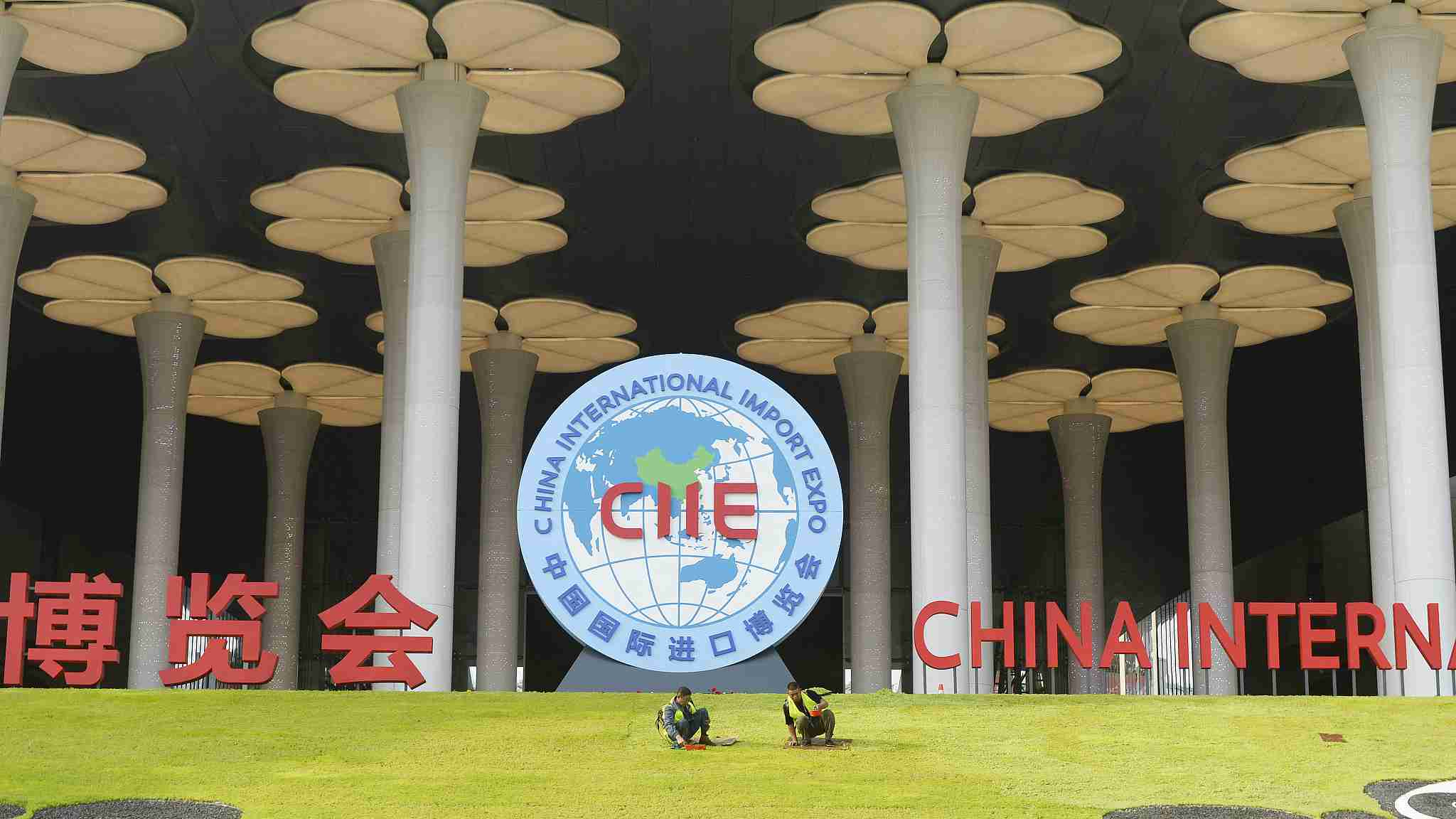
Business
22:06, 31-Oct-2018
US business community firmly backs CIIE despite trade tensions
Updated
21:17, 03-Nov-2018
CGTN

Despite ongoing trade tensions, 180 US companies have registered for the upcoming China International Import Expo (CIIE), highlighting how the American business community continues to share the same goals as China when it comes to openness and economic globalization.
The CIIE, which runs from November 5 to 10 in Shanghai, will see more than 2,800 foreign companies exhibit their products. The event aims to underline China's firm support for trade liberalization as it actively opens its market to the world.
The US will make up the third biggest delegation of businesses at the CIIE, with leading companies from sectors such as high-end manufacturing, intelligence equipment, household appliances, culture and sports attending.
A closer look at the US companies attending the CIIE reveals some of the world's top 500 firms. Walmart, the world's largest company in terms of revenue, will be attending, as will tech giants Google and Facebook. General Motors and Ford, two of the world's biggest automakers, will also be present.
Meanwhile, major US unicorns that are developing the technology of the future and world-changing ideas will also be at the CIIE, with Tesla and WeWork's attendance highlighting the importance that the next generation of US business leaders attaches to China's market.
The strong support of the US business community for the goals of the CIIE highlights a divide between some of the world's biggest companies and the White House, with Washington notably refusing to send any high-level representatives to Shanghai.
Hua Chunying, a spokesperson for the Chinese Ministry of Foreign Affairs, told a press briefing last week that the US was “making trouble out of nothing.”
"What is puzzling is that the US side requires China to open its market to US products and services, but on the other hand, when the door is opened, the US is not willing to send high-level officials to participate."
Robert Kuhn, chairman of the US-based Kuhn Foundation, told Xinhua News Agency that American companies were keen to avoid the "distraction” of trade tensions and instead focus on dealing with “the nuts and bolts of their own business. And to be successful, they need to be in the Chinese market."

SITEMAP
Copyright © 2018 CGTN. Beijing ICP prepared NO.16065310-3
Copyright © 2018 CGTN. Beijing ICP prepared NO.16065310-3